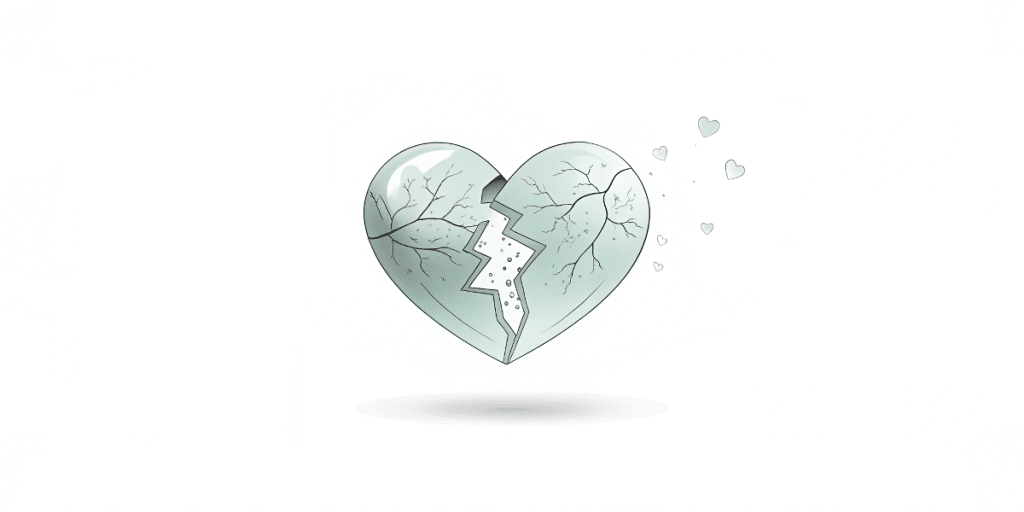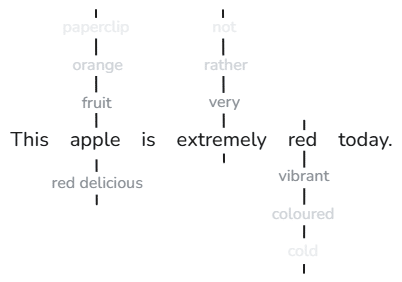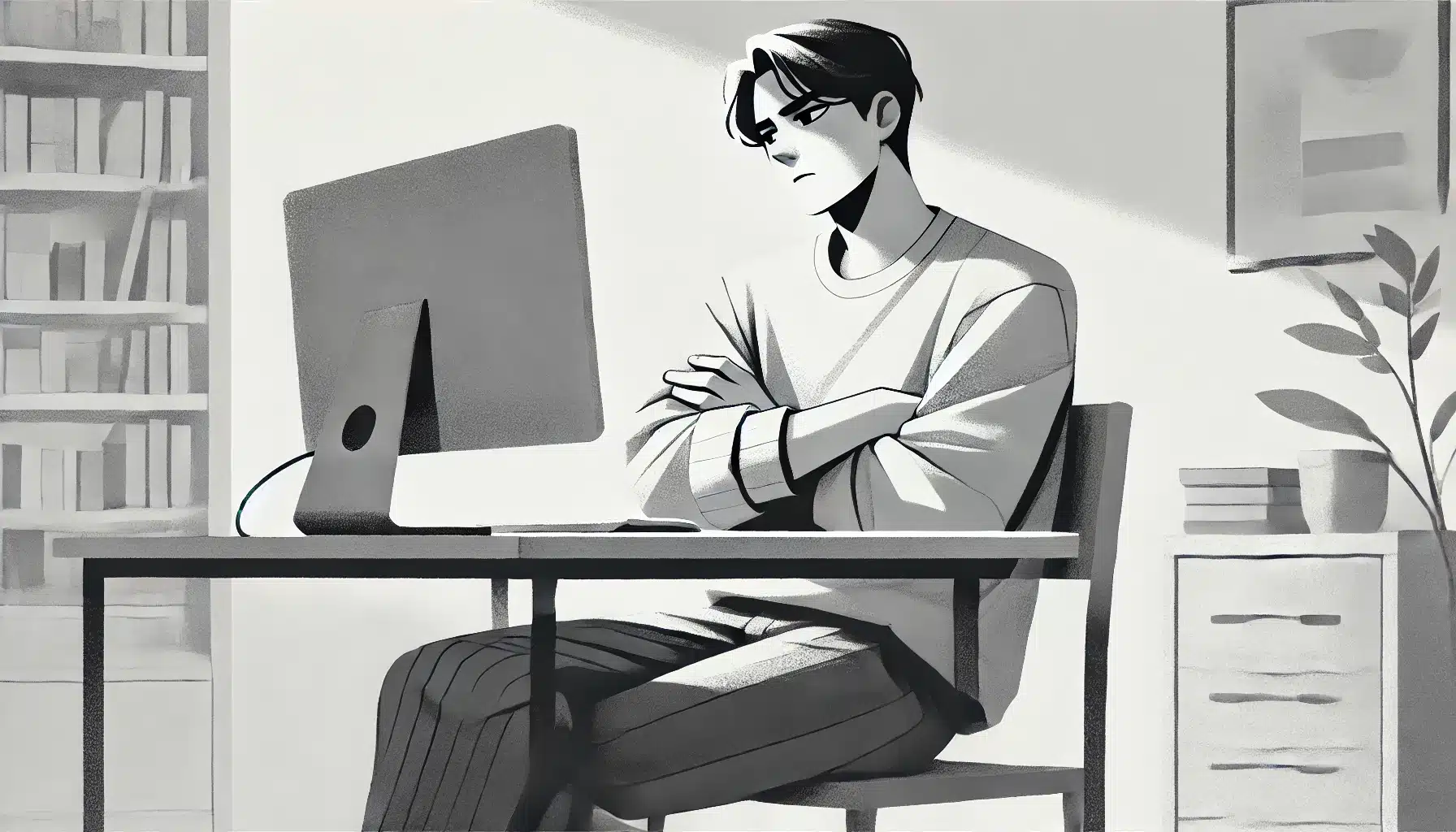Most people do not know what hunger feels like.
I don’t mean a rumbling in your stomach or a simple craving. These are slight nagging feelings that arise after only a handful of hours.
I mean a deep, overpowering compulsion. The body ceases to function properly. The mind narrows in on any perception of sustenance. Your nose sharpens, and even a faint smell of something sweet or savoury consumes you entirely.
Hunger is not a physical sensation. It is an all-encompassing one.
Your focus becomes food and only food. Without meaning to, your mind turns over its next fifty meals, trying to replace the physical with sheer imagination. You crave anything and everything.
We are not prepared for that feeling, Many people would say they could control themselves – resist their urge to dwell on images of food, distract themselves somehow. When you find your jaw drowned in saliva, unaware you were even producing it, you may then understand what I mean. If you have never done it, it is difficult to comprehend how one could drench themselves with spit at the sheer sight of a simple burger on a dimly lit LCD screen, entirely unaware of how zealously and fervently they are staring at the monitor.
Sheer desperation is a sight to behold.
Things Can Be Two Things
How would one even begin to describe such a sensation? The term ‘hunger’ has been bastardised into the typical experience – which makes sense. For those that have never experienced it, reserving the term for a sensation they are likely never to feel is deeply impractical. There is far more utility in co-opting words to suit the common experience. After all, the point of language is to put understanding to things we may feel and observe. It would be a disservice to hold steadfast to unnecessary constraints on our definitions.
The simple solution is synonyms. We might begin to use words like ravenous or famished. We might turn to an expression like chomping at the bit. We may even choose to describe the sensation more accurately – after all, that is what it means to be starving.
Unfortunately, human communication has ruined these terms also. Dramatic exaggeration is a tool for getting one’s point across. We now describe ourselves as starved or malnourished, despite our body’s easy readiness to continue fasting, and the uncomfortable truth that our last meal was only hours prior. It is easy to be lax with definition when our lived experience does not require specificity.
It is a weakness with both language and the culture of our communication. To describe an experience accurately is near impossible – subjectivity is a difficult opponent of clarity when conveying ideas.
So the more nebulous or ethereal a concept, the more creative liberty we take in our expression. And few concepts are more difficult to define than love.
What Is Love Like?
We express love for simple things. We have love for our food, our experiences, our possessions and surroundings. A swelling of emotion can be shorthanded into ‘love’, and the same conveniences apply as with any other simple communication. For me to say ‘I love these fries’, the stakes are rather low. Misunderstanding carries no penalty.
However, love is unique in this regard. The emotional tie in for us humans can be immense. To love the wrong person carries immense consequence. For those of us that are risk-averse, it can be tantamount to other acts of self-harm. Intentionally placing ourselves in a vulnerable state with only blind faith and a desperate hope that the recipient will not betray that trust defies logic.
Love can cause immense pain and damage. So common are the consequences that we have a term for a physical consequence of an emotion. Few emotions can hurt us so plainly and easily as heartbreak. Mismanaged expectations of loving another person are, put simply, torturous.
So why would we risk the miscommunication? Why use only four short letters to try and encapsulate the breadth of one of the most vague, subjective and entirely undefinable human experiences?
What other choice do we have?
Being Unprepared
To avoid such dreadful miscommunication as can occur in matters of the heart, we must in vain try to prepare ourselves. There are few objective truths about what love is, and precious few resources that can even partially prepare one for giving or receiving it. Philosophers have argued for much of recorded history on the subject, and I suspect that debate will never settle.
It is a shame to be loved by someone that is not yet capable of it. Emotional labour is as challenging as the physical, only much trickier to understand. Jumping the queue, or repressing the idea that there is work to be done is folly. Your emotions cannot be escaped. Only delayed.
In trying to love, I can understand some things to be true of love for me personally. I believe that love is an illogically selfless endeavour. This is why much of our rhetoric on the subject describes how significant a force for change love can be. Change only occurs when desire is present, and love is arguably the greatest form of desire we may possess. It boggles the mind to imagine what is possible for ourselves when we understand our tasks to be necessary for our partner’s sake.
In trying to discern genuine love for miscommunicated temporary infatuation, we all choose some of our own axioms. These are some of mine.
Loving Someone Is A Decision
As with motivation, with passion and with energy, we cannot depend on love. There are days where we may wake up to find an absence of feeling. To continue loving is a decision, one born of faith and of confidence that love existed previously, and will return in time. Much of life is frighteningly impermanent. To make decisions on a dime harms any semblance of emotional investment that came before.
We choose to love first, and feelings follow that choice. Anxiety, fear and distraction may be a temporary bar to feeling, but with intimacy and trust comes confidence. Feelings never truly disappear without consent, they are simply masked and allowed to be hidden in the background.
For one to never go looking betrays any declaration of love at all.
Love Is Vulnerability
The romantic’s dream is sheer, unconditional acceptance. We feel the most loved when we are given permission to be ourselves, fully and completely, and accepted anyway. To hide part of yourself or to hold onto the mask we use with others is a cruel act to your partner.
Being vulnerable is, by definition, opening ourselves up to the possibility of harm. Guarding ourselves is a useful skill, but an entirely self-obsessed one. A relationship is a mutual act of prioritising the other person, and it is that impossible oxymoron that creates such a beautiful dynamic between the people that choose to create it.
A partner that cannot be vulnerable, cannot express or understand their own feelings or cannot choose to prioritise you is no partner at all. That is simply a person, and they are as incapable of receiving love as they are of giving it – for you are not in love with them, but instead the shallow depth of vulnerability they selfishly allow you to witness.
One Cannot Love Selfishly
We cannot enter into a relationship half-heartedly or without intent of emotional commitment. To do so is to abandon the idea that it may succeed. My other axioms are decisions, choices to be made for the hopeful enthusiasm that if I place my all into the other person, they may return in kind.
I want to dote on my partner, provide for my partner, obsess over my partner. This is not a malignant emotional display, but a choice of how to engage with a relationship. I am not interested in the shallow, and I would rather be alone than contend with someone that has no interest in the same depth of feeling.
To place oneself first is a death knell for a relationship. It requires discomfort and bravery, as we may never know for certain if our emotional labour will be returned in kind, or simply wasted on selfish deceivers that is far more comfortable being comfortable.
I Suspect You’ve Never Loved
It is my feeling that for people to be unaware or unwilling of these types of axioms, they are closing themselves away from a universal human experience. As challenging as semantics can be, I would struggle to define the feelings and actions of people that refuse to engage with their relationships in a similar way as love.
How could they be? Their feelings are deeply conditional, at the whims of the external and their readiness to engage. Be selfish in your life, take action to help yourself where you can, absolutely. But to refuse to develop relationships because of roadblocks, because of an unwillingness to perform emotional labour? At best, that is cruelty by intentional negligence, and at worst, a malicious act.
I do not wish to judge people. I simply think that the costs of these miscommunications and faults can be too significant to warrant the ambiguity in the language. Do what you wish and what is good for you.
But I suspect you have never loved.




